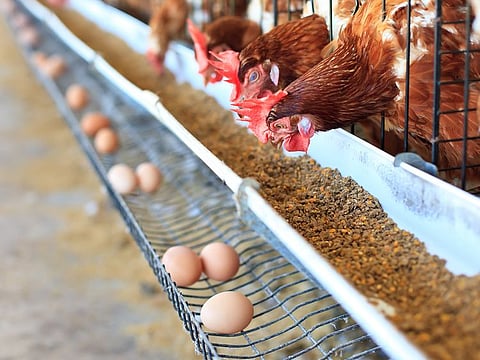Pakistan’s new UniGold chicken lays over 200 eggs a year and ensures food security
The new breed offers a homegrown solution to rising egg demand for increasing population

Dubai: Imagine a chicken that lays more than 200 eggs a year, eats less, handles the heat, and thrives in your backyard.
That is exactly what Pakistani scientists have just delivered with UniGold, a newly developed breed from the University of Agriculture Faisalabad (UAF).
UniGold lays up to 212 eggs annually, compared to just 70–80 from local hens. It’s bred to suit the realities of rural Pakistan with low feed availability, hot weather, and limited infrastructure.
Backyard poultry
As Pakistan grapples with rising food costs and continued dependence on imported poultry breeds, the new chicken breed named UniGold that lays over 200 eggs a year—nearly three times more than traditional local hens - -provides a homegrown solution to shortage of poultry products in Pakistan. The breakthrough promises to strengthen rural incomes, empower women, and boost national food security. It is also great news for women in agriculture, who are often the caretakers of backyard poultry.
Also Read: Recipe for Pakistani-style chicken karahi
Funded by the Punjab Agricultural Research Board (PARB), the UniGold project is a strategic effort to decrease Pakistan’s reliance on imported poultry stock, such as Fayoumi and Rhode Island Red breeds, reported Geo TV.
Developed at UAF’s Institute of Animal Sciences, UniGold is specially bred for backyard poultry farming. It thrives in low- to medium-input systems common in central and southern Punjab, requires less feed, and can withstand high temperatures—a vital trait in a country increasingly affected by climate change.
UniGold super hens
UniGold hens reach laying maturity by 25–26 weeks and achieve peak productivity rates of up to 83.2% by 32 weeks of age. Each egg weighs an average of 52 grams—around 25% more than those from native hens.
Rural poultry accounts for about 36% of Pakistan’s total egg production, with women playing a central role in its management. The higher yield from UniGold could significantly improve household nutrition and incomes, especially among landless farmers and vulnerable rural communities.
Expansion
UAF plans to expand the reach of this breakthrough through the establishment of an Indigenous Chicken Research and Development Centre. The initiative aims to mass-produce and distribute UniGold chickens to farmers across Pakistan.
Sign up for the Daily Briefing
Get the latest news and updates straight to your inbox


